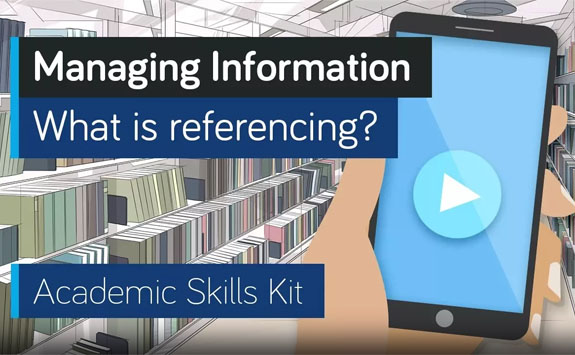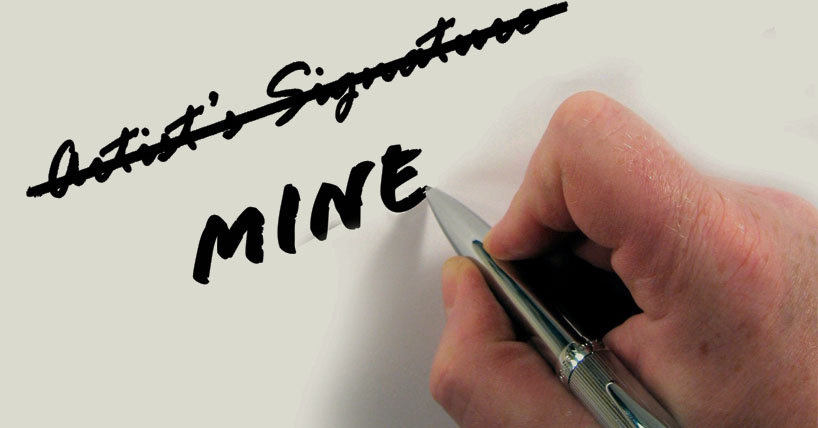What is Referencing?
Reflect on why referencing is important and when you need to use it in your work.
What is referencing?
Referencing is how you acknowledge the source of the information you have used (referred to) in your work. It helps to make clear to the reader how you have used the work of others to develop your own ideas and arguments.
Whether you are quoting directly from a book, summarising an idea from a journal article, illustrating a point with an image, or paraphrasing an opinion from a newspaper article, you need to give credit to the original creator of the work.
Key referencing terms
Sometimes the words used to describe referencing can be confusing, especially as they are often used interchangeably. To keep things simple, here is a quick summary of key referencing terms:
Citation: this is an acknowledgement that you place in your writing at the point you have referred to someone else’s work. It may be in the author-date format, author-page format, a footnote or endnote, or in numbered format.
Reference: each citation should have a corresponding reference, which provides further details about the source of information you have used. This may include the creator’s name, date of publication, title of the work, publisher details and a URL if accessed online. References are usually placed at the end of your writing in a reference list.
Bibliography: this is another name for the list of references at the end of your document. A reference list usually only contains references for material you have cited in your work. A bibliography may also include references for materials you have read or consulted but not cited.
What do you need to reference?
You need to reference every time you use the work of others. This applies to any type of information, including:
- ideas
- text
- data
- designs
- images / tables / graphs
- music
- computer code
- AI generated content
Whatever the information source: website, textbook, journal article, magazine, newspaper, YouTube video, or social media site, if you have quoted, paraphrased or summarised another person’s work, or work created by an AI tool, you need to reference it.
However, you do not need to reference commonly known facts, for example:
"Newcastle upon Tyne is in the North East of England".
.jpg)
Why do you need to reference?
Referencing is important for the integrity and quality of your academic writing as it:
- makes clear which ideas are your own and which are those inspired by others; this enables you to avoid plagiarism
- gives authority to your work by showing the breadth of your reading
- shows the reader how you have developed your arguments and engaged with the ideas of others
- enables a reader to see the original sources that you've used; they can follow up on your references so they can learn more about the ideas you’ve discussed in your work or check any facts and figures
- allows others to use your work as a research source (for which you should be cited!)
The quality of your referencing can affect the marks you’re given for assessments, so it’s worth taking the time to get them right.







